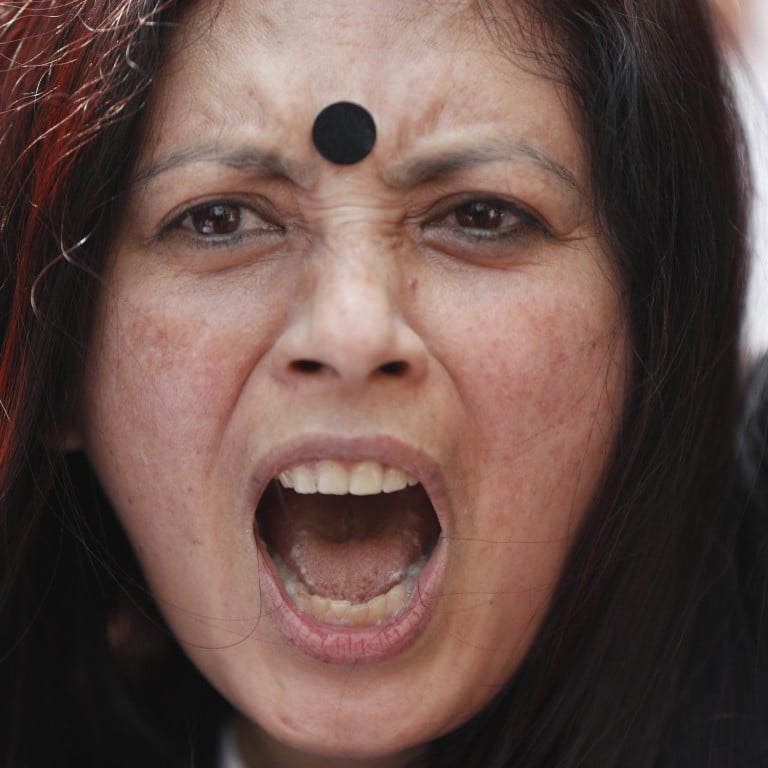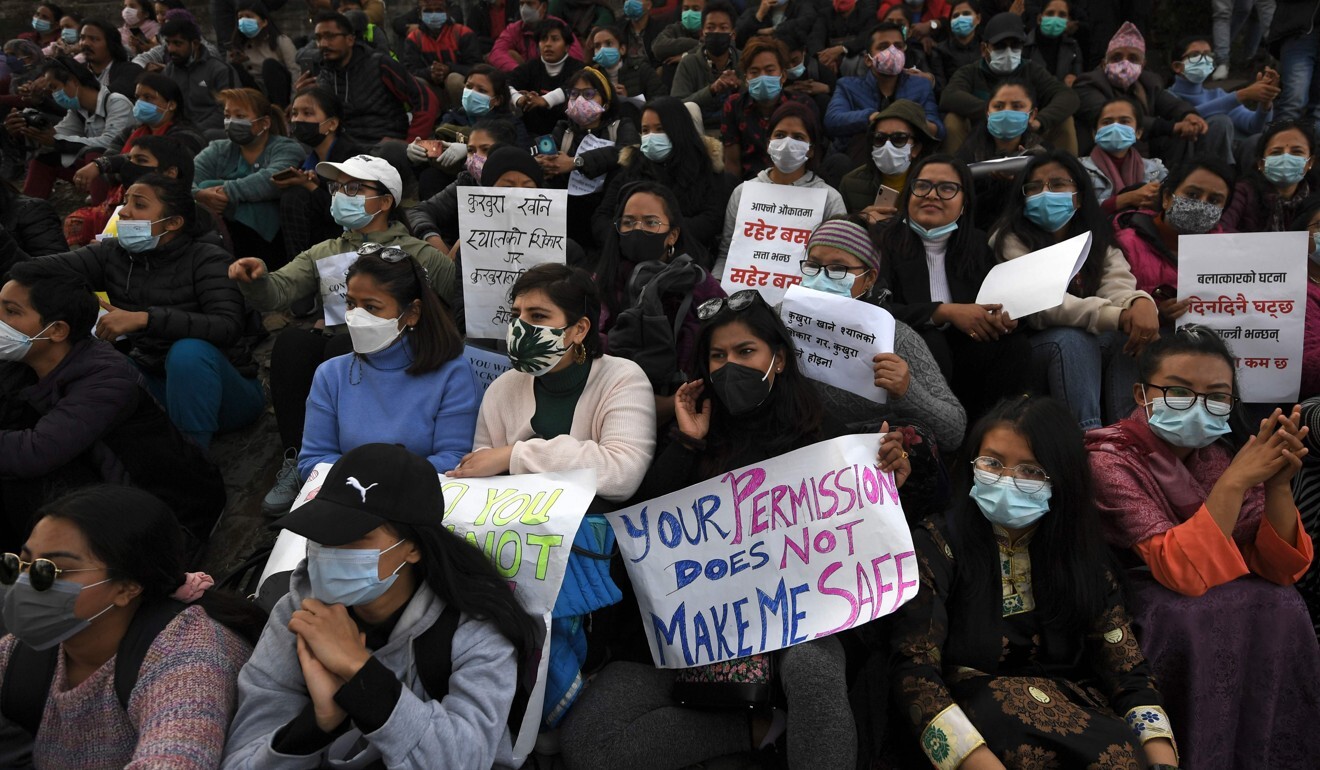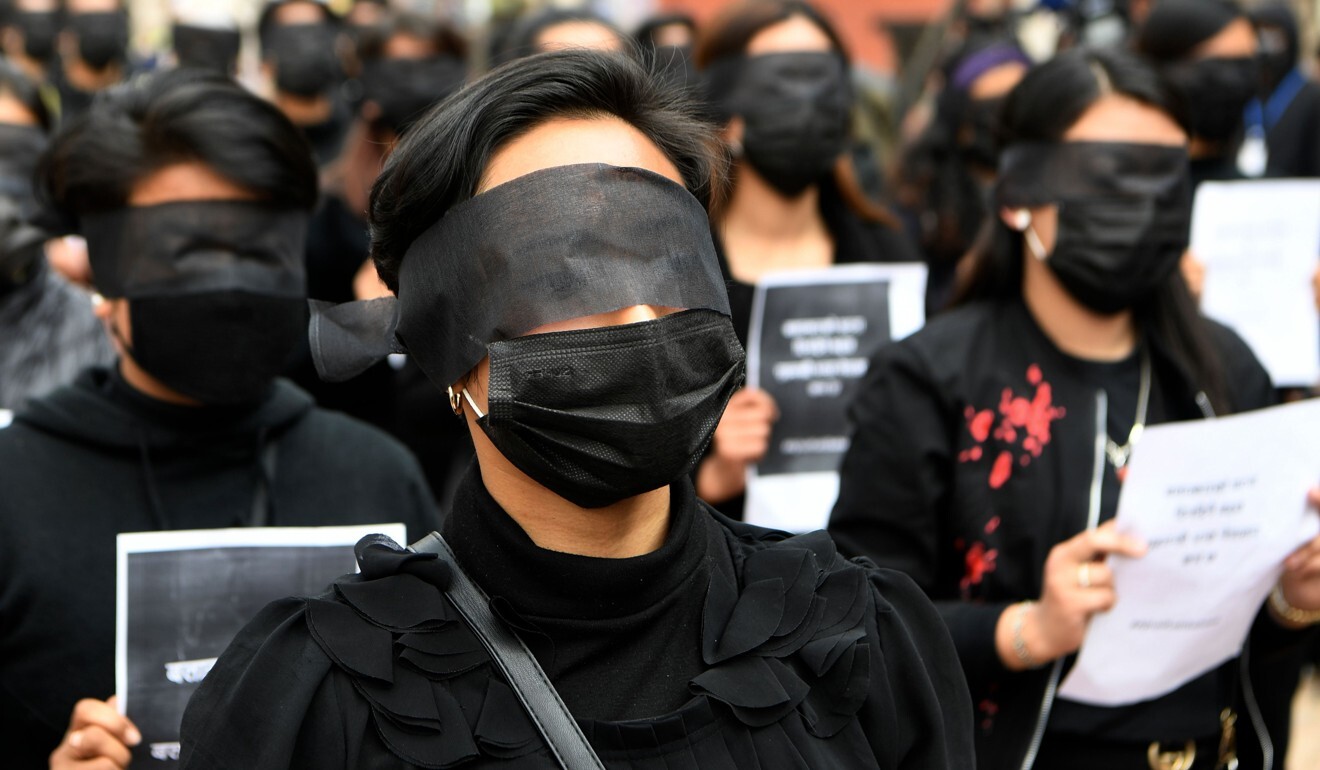
‘Nepal is becoming Afghanistan’: activists hit out at plan requiring women to get male assent for foreign travel
- The planned law is intended to ‘combat’ incidents of women being exploited abroad as forced labour, according to the Nepalese government
- But critics say it reflects a patriarchal mindset that ignores women’s rights – and repeats earlier restrictions that did little to end human trafficking
To the Nepalese government, a proposed law requiring women under the age of 40 to get permission from a male guardian before travelling alone to the Gulf states and Africa for the first time is a means of protecting them.
Activist Prakriti Bhattarai Basnet, chair of the non-profit group Political Literacy for Women, tweeted that the Nepalese government was becoming like the Taliban “and Nepal is becoming Afghanistan”, in reference to the militant Islamic fundamentalists who ruled the latter country for several years and are known for severely limiting women’s freedom of movement.

The director of Nepal’s immigration department, Teknarayan Paudel, told local media that the new law – which would also require any Nepali woman under 40 to get permission from her local government ward office before travelling to the Gulf states and Africa for the first time – could “combat” incidents of women being exploited abroad as forced labour.
The report said those who were trafficked were usually told of employment opportunities while others thought they were going to get married, only to end up working as “bonded labour”.
“Nepali women taken to the Gulf countries for domestic work and other professions are subjected to forced labour and sexual exploitation to some extent,” the report said.

Chakra Bahadur Budha, of the Nepalese Home Ministry’s security and coordination division, told This Week in Asia that nothing had been finalised, but said the government had received suggestions from the immigration department. The latter found that Nepali women who went to the Gulf and Africa on tourist visas faced “more serious violence than men” if they became trapped by traffickers or overstayed their visas to work, he said.
Bijaya Rai Shrestha, the founder and president of Aprabasi Mahila Kamdar Samuha, an NGO for returnee migrant women, described how a Nepali woman who went to Kuwait for a promised job soon realised she had been trafficked after her handler demanded a payment of US$2,000 when she tried to return home.
This [proposed law] reflects the patriarchal mindset that females go [abroad] for prostitution while males go for dignified work
“This reflects the patriarchal mindset that females go [abroad] for prostitution while males go for dignified work,” she said, adding that the new proposal “violates the country‘s constitutional provisions that guarantee the equal rights” of all citizens and “goes against the UN Convention on the Elimination of All forms of Discrimination Against Women,” which Nepal ratified in 2010.
Manju Gurung, a strategic adviser at Pourakhi, a migrants‘ rights organisation, said the proposed move – which would also require women to purchase insurance with coverage of 1.5 million Nepalese rupees (US$12,800) and show proof of having exchanged US$1,000 before leaving the country – would further “push” women to “adopt illegal routes” to go to different countries of prospective employment leaving more room for “exploitation”.
Human rights lawyer Anurag Devkota said previous restrictions on women seeking to travel abroad for work – such as a provision in place until 2005 that had required women under 35 to get a male family member’s consent before applying for a passport – had not helped combat the trafficking problem.
The colourful Russian who launched Nepal’s tourist industry
Instead, Shrestha said the government should ensure that women are educated about the dangers of trafficking, and equip those who do seek employment abroad with awareness training, language and negotiation skills so they are able to negotiate wages with their employers.
Basnet said the thinking behind the proposed restrictions shows just how far Nepal has to go to achieve gender equality. She pointed to how until recently the country’s women did not have the right to pass on citizenship to their children, and to this day face harassment from local officials if they refuse to give the identity of their child’s father.
The government should also investigate if immigration officers and recruitment agencies were colluding when it came to human trafficking, Basnet said.
A 2016 Human Trafficking and Public Corruption report from the London-based International Bar Association found that Nepali manpower agents had paid bribes to immigration officials at Kathmandu‘s Tribhuvan International Airport to ensure that workers en route to Qatar were able to depart. Some immigration officials at the airport allegedly received up to US$20,000 in bribes per day to approve workers’ travel documents, the report added. Certain corrupt officials have since been arrested.
For a single woman traveller, travelling out of Nepal’s international airport is as difficult as going to the moon
Last year, a parliamentary committee urged the Nepalese government to do more to ensure Nepalis working abroad were being paid their wages and provided with weekly and annual leave, social security, and occupational health and safety, among other basic rights, but its recommendations were not implemented, Devkota said.
Bhawana Raut said the government could also work harder to create new jobs in Nepal to reduce the outflow of young people seeking employment abroad.
The 21-year-old said women already face a lot of “humiliation” at the airport if they are travelling solo, pointing to two separate occasions in 2019 when immigration officials called her father to check if he knew that she was travelling alone to Dubai on one occasion, and to Goa in India on the other.
“For a single woman traveller, travelling out of Nepal’s international airport is as difficult as going to the moon,” said Raut, who has also protested against the proposed law.
